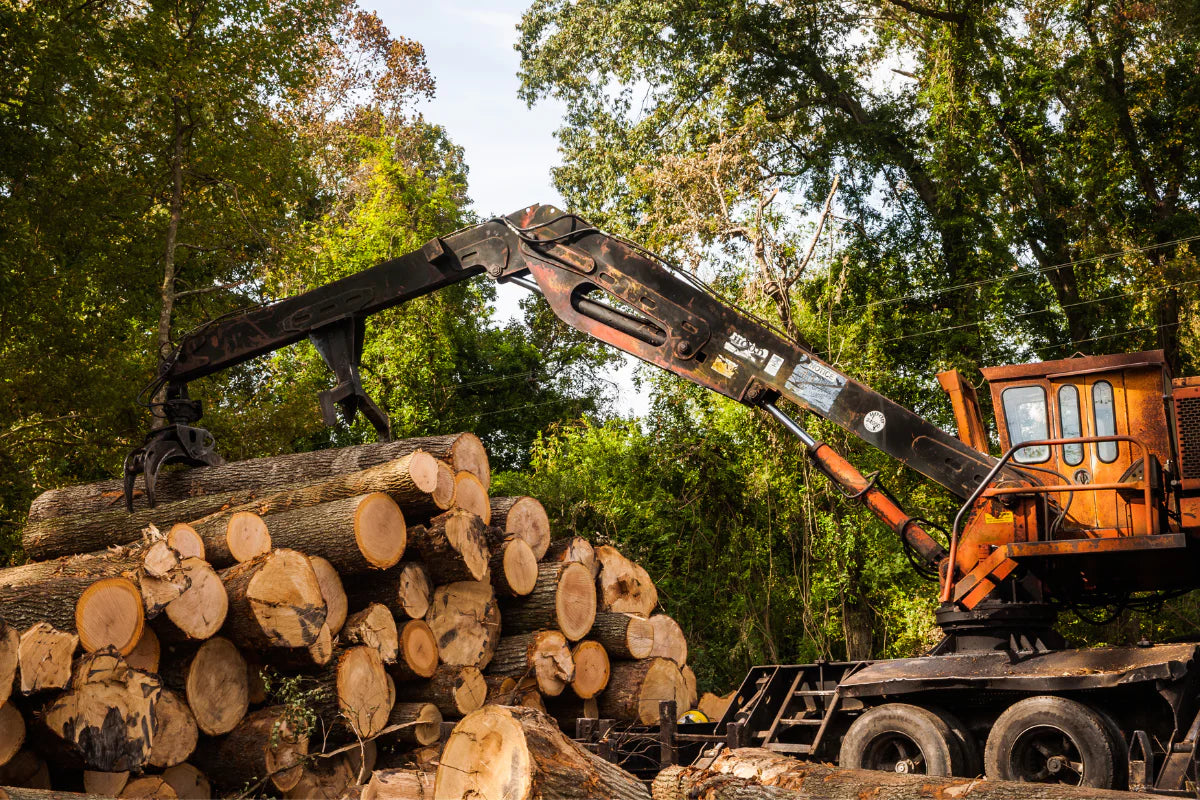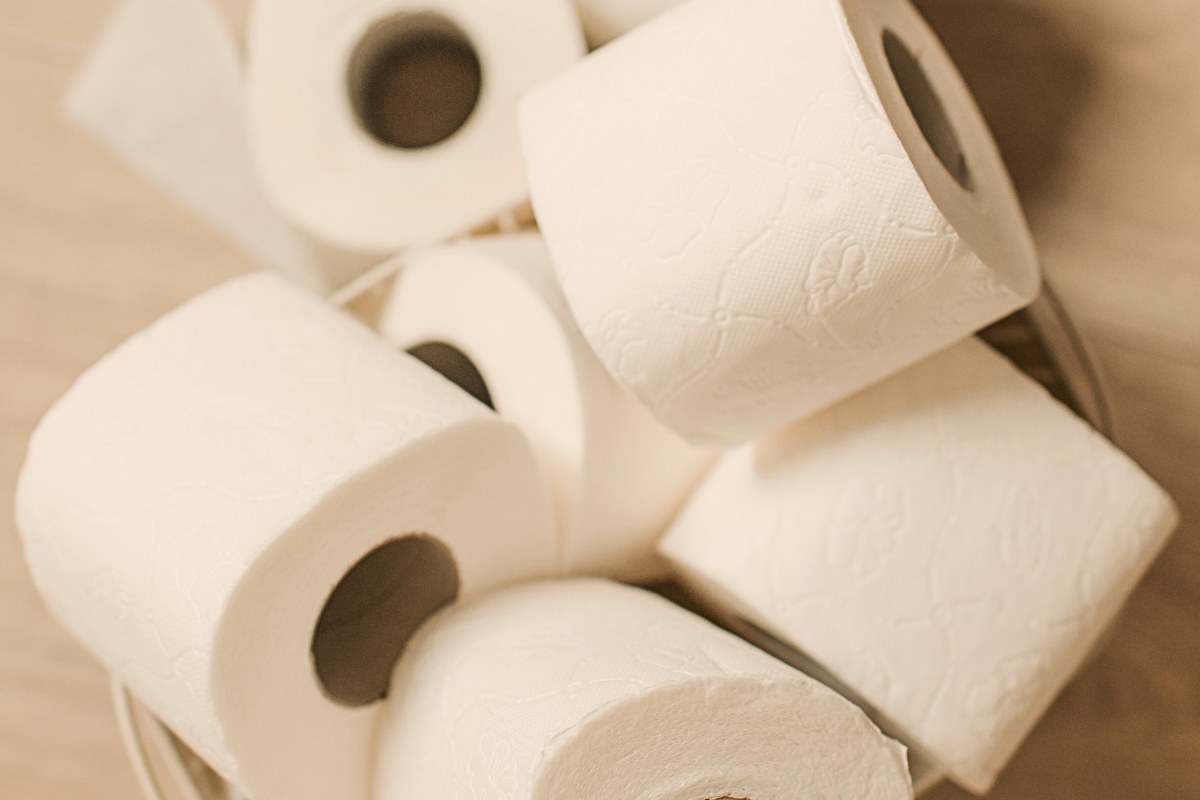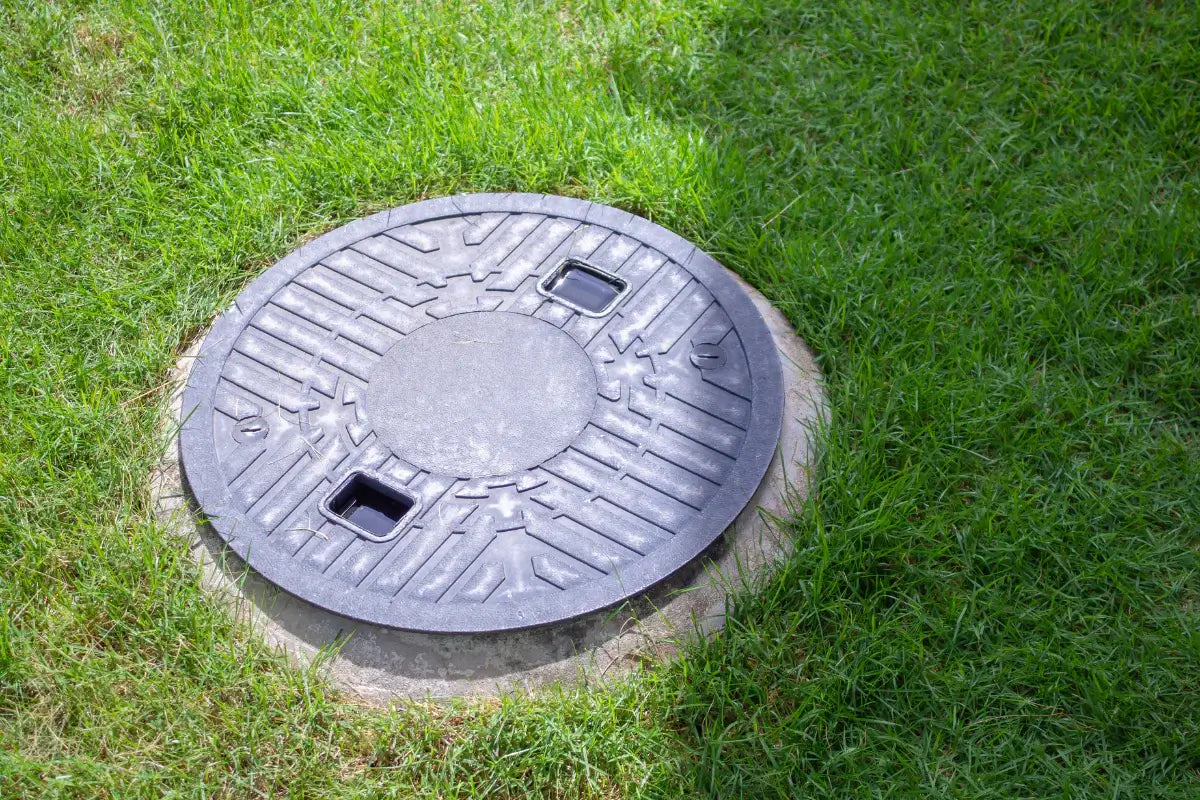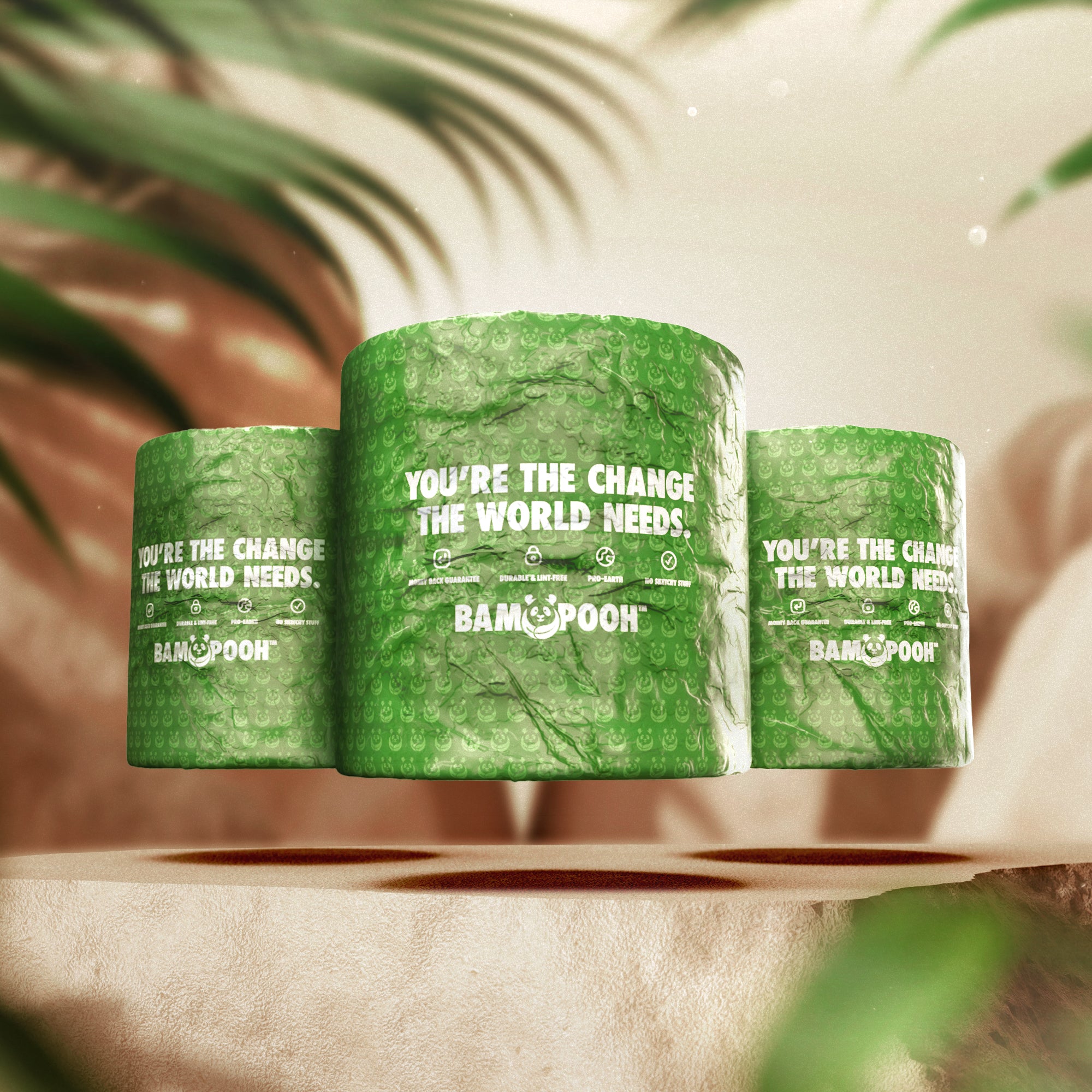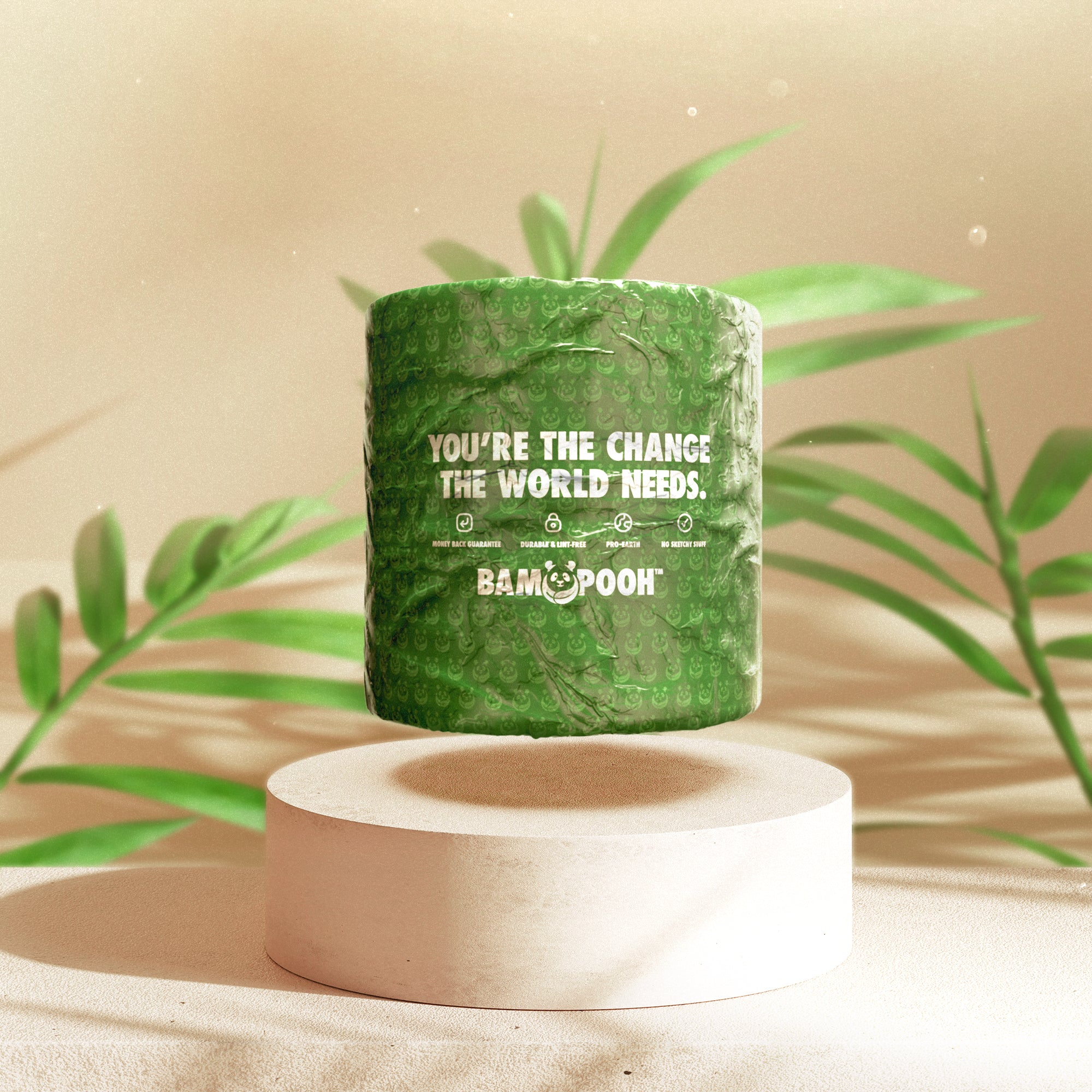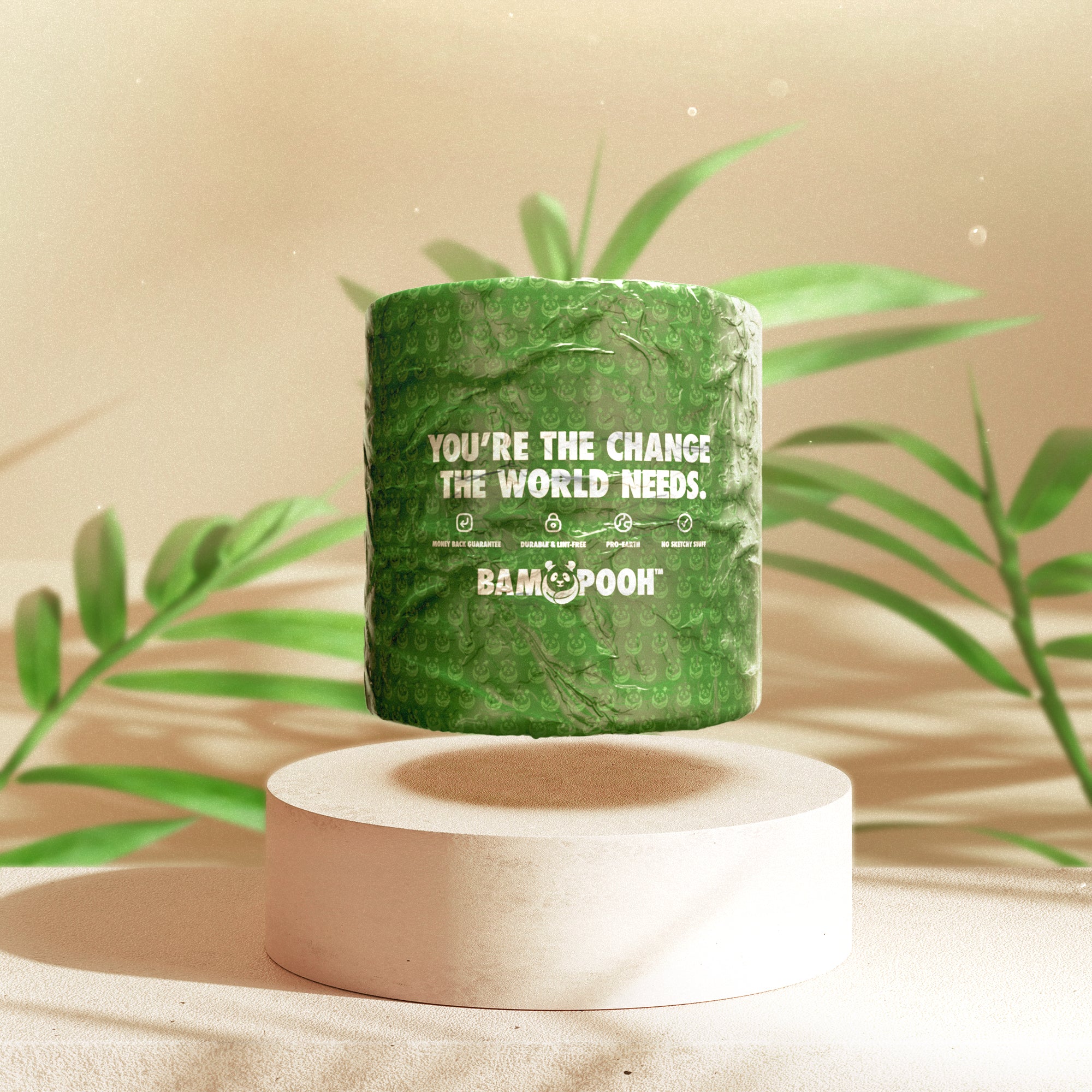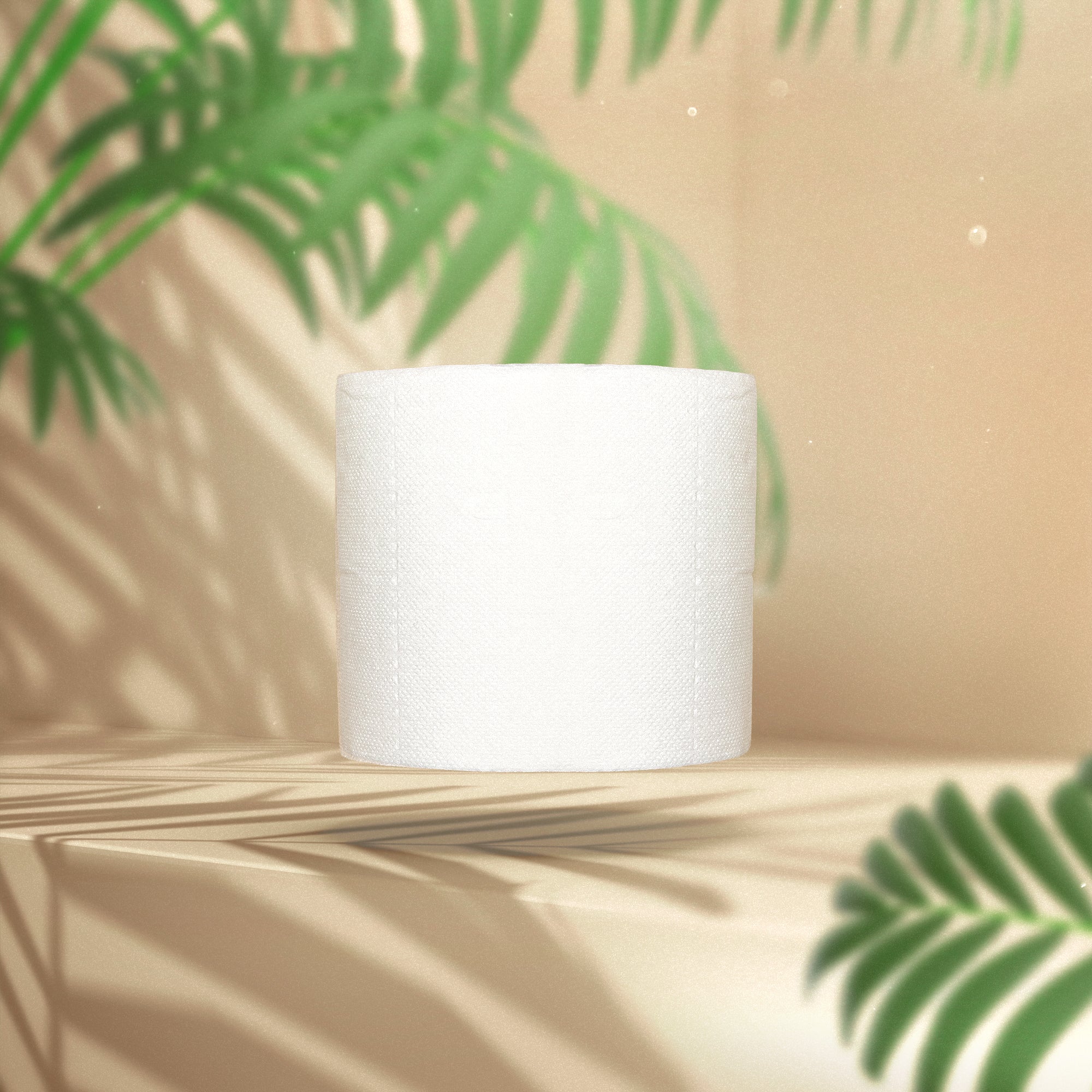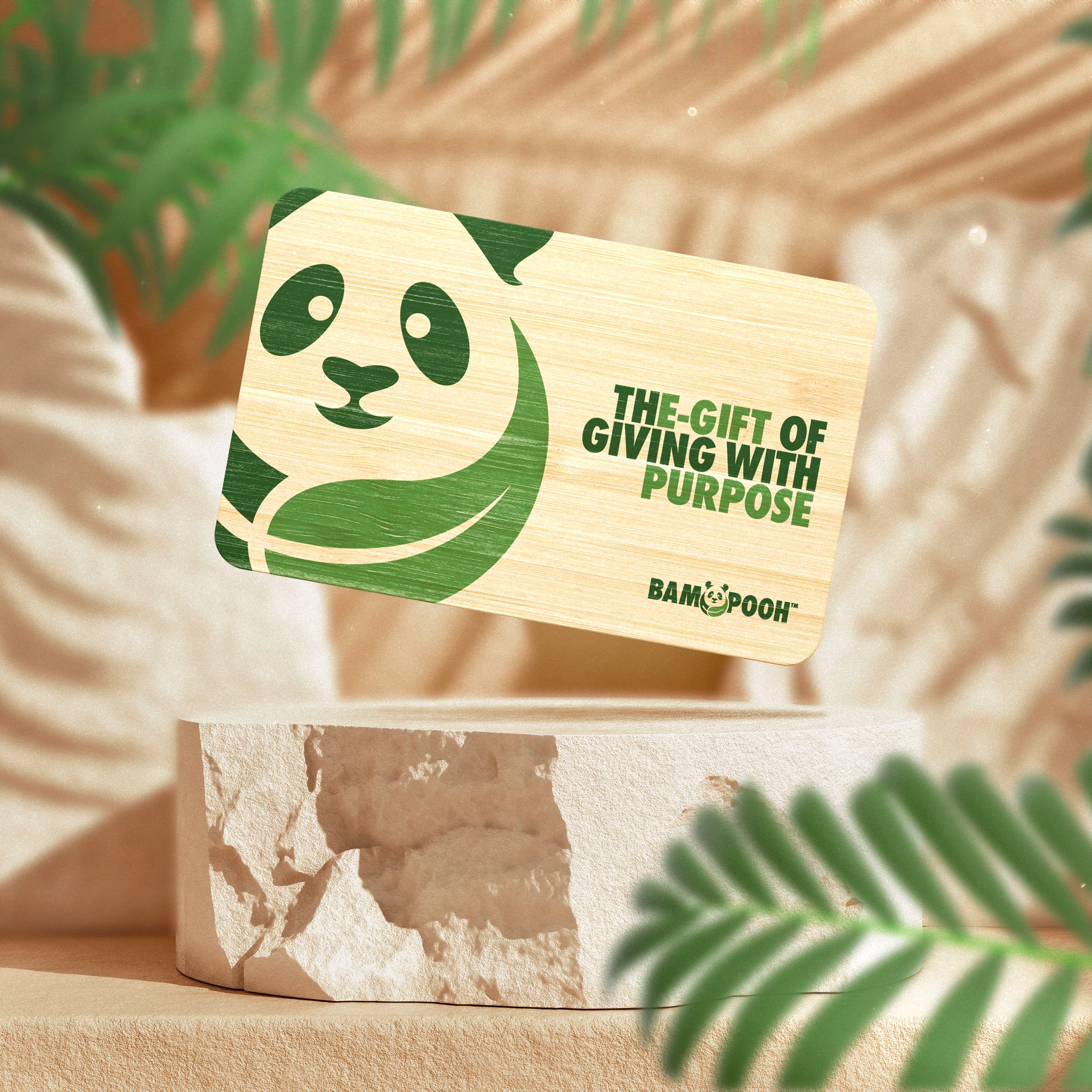You've likely heard about bamboo toilet paper in your search for more sustainable, eco-friendly products. But what makes bamboo an eco-friendly alternative to the tree-based toilet paper we've been using for decades? The answer lies in the nature of bamboo itself.
Unlike trees, bamboo is a type of grass. It's one of the fastest-growing plants on the planet, with certain species capable of growing up to three feet within a 24-hour period under optimal conditions. This rapid growth rate stands in stark contrast to the trees commonly used to make toilet paper, which can take up to 30 years to reach maturity.
The fact that bamboo is a grass and not a tree brings another significant advantage: once bamboo is harvested, it doesn't need to be replanted. New shoots will sprout from the plant's existing root system. This means less work, less soil disruption, and a continually renewing resource.
While the environmental cost of cutting down trees for toilet paper is devastating, with estimates suggesting around 27,000 trees are felled each day for this purpose alone, using bamboo as an alternative greatly reduces this impact.
Bamboo's Environmental Credentials
Bamboo's environmental credentials extend beyond its speedy growth and natural regeneration. It's a hardy plant that requires no pesticides or artificial fertilizers to grow, reducing pollution from agricultural runoff.
Bamboo farms are also excellent carbon sinks. Carbon sinks absorb CO2 - the primary greenhouse gas responsible for climate change - from the atmosphere, helping to combat global warming. In fact, bamboo absorbs more CO2 per area than trees, making it an excellent tool in the fight against climate change.
The Production Process: Another Win for Bamboo
The benefits of bamboo extend into the production process. The production of traditional, tree-based toilet paper involves a high degree of processing, including bleaching, which can release toxic chemicals into the environment.
In contrast, bamboo can be processed into toilet paper in a more environmentally friendly manner. It's naturally lighter in color, reducing the need for heavy bleaching. The pulping process used to turn bamboo into a soft, fluffy material suitable for toilet paper is less energy-intensive than wood pulping, further reducing its environmental footprint.
The Superiority of Bamboo Toilet Paper
The production benefits of bamboo would be moot if the end product did not hold up, but fortunately, bamboo toilet paper is just as good, if not better, than its traditional counterpart. Bamboo toilet paper is typically softer than standard toilet paper, giving a comfortable experience. Its fibers provide strength, reducing the chances of any... ahem... unexpected breakthroughs.
Moreover, bamboo toilet paper also has health benefits for users. Because of its minimal processing, it's free from de-inking agents, BPA, and other chemicals often found in recycled papers. It's a hypoallergenic and non-irritating choice, making it perfect for those with sensitive skin.
But perhaps the most compelling advantage of bamboo toilet paper is its sustainability. With each roll, consumers can save trees that would have been cut down for regular toilet paper production. Imagine the cumulative effect if we all made the switch. That's a lot of trees saved, a lot less CO2 in our atmosphere, and a significant stride towards a sustainable future.
The Economic Angle
While bamboo toilet paper might come with a slightly higher price tag, it's essential to consider the full picture. The hidden environmental costs of traditional toilet paper - from the destruction of forests to chemical pollution - aren't reflected in its price. However, we all pay for them indirectly through degraded ecosystems, poorer air quality, and the escalating impacts of climate change.
So, when you choose bamboo toilet paper, you're not just buying a roll of toilet paper; you're voting for a sustainable and equitable world. You're contributing to an economy that values and protects our precious natural resources.
The Sustainability Factor: Bamboo Toilet Paper
When we talk about sustainability, we refer to the capacity of our practices to meet our needs without compromising the ability of future generations to meet theirs. In this context, bamboo toilet paper's sustainability is clear.
We've already touched on the astonishing growth rate of bamboo compared to traditional trees. This rapid regeneration means that bamboo can be harvested repeatedly on the same patch of land, reducing the need for land conversion and deforestation.
Besides, unlike conventional tree plantations, which can take decades to recover from a harvest, bamboo fields can be harvested annually, leaving the ecosystem largely undisturbed and allowing wildlife to thrive.
Also, because bamboo toilet paper decomposes faster than its regular counterpart, it's less likely to contribute to landfill waste. Every roll used is a roll that won't stick around for centuries, polluting our environment.
Making the Switch to Bamboo Toilet Paper
Now that we've explored the many environmental advantages of bamboo toilet paper, how about making the switch? Changing your toilet paper is an easy adjustment to make, but it can have a significant impact.
When you opt for bamboo toilet paper, you're casting a vote for a more sustainable world every time you shop. It's an easy way to reduce your environmental footprint and make your home more eco-friendly.
Plus, bamboo toilet paper doesn't mean compromising on quality. Bamboo toilet paper is often softer and stronger than traditional toilet paper, making it a win-win for both you and the planet. So why not give it a try?
Conclusion: An Easy Choice for the Planet
To sum up, is bamboo toilet paper eco-friendly? Undeniably, yes. With its fast growth, renewability, and less destructive production process, bamboo toilet paper is an easy and effective way to reduce your environmental impact.
In our world today, where climate change and environmental degradation are all too real, every action counts. And something as simple as changing the type of toilet paper you use can be a step in the right direction.
So, next time you're shopping for toilet paper, consider reaching for a pack of bamboo rolls. It's a small change to make, but with a potentially big impact. After all, many small actions can lead to big changes, and our choices today will shape the world of tomorrow.
By choosing bamboo toilet paper, you're not just making a decision for yourself. You're making a decision for the future of our planet. And that's a decision we can all feel good about.


